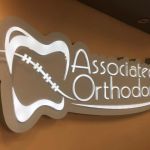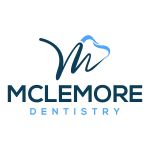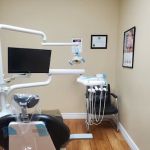Choosing the Right Toothbrush: Electric vs. Manual
When it comes to oral hygiene, choosing the right toothbrush is one of the most crucial decisions you can make. Over the years, I’ve often found myself caught in the debate of whether an electric toothbrush is better than a manual one. As someone who's tried both, I can tell you firsthand that both options have their merits, but choosing the best one for you depends on several factors. So, whether you’re a toothbrush novice or looking to upgrade your dental care routine, here’s my guide to help you understand the differences between electric and manual toothbrushes, and how to choose the one that suits your needs best.
Why the Right Toothbrush Matters
Oral hygiene is not just about brushing your teeth; it’s about maintaining a healthy mouth, preventing tooth decay, gum disease, and bad breath. Brushing correctly with the right tool can significantly improve your overall dental health. I can recall a time when I was using a manual toothbrush but struggled to properly clean my back teeth and gum line. After switching to an electric toothbrush, I noticed that brushing felt more thorough and efficient, especially in those hard-to-reach areas. It’s one of the key reasons why the debate between electric and manual toothbrushes is so important. So, how do you choose the best toothbrush for you? Let’s dive in and explore the pros and cons of each type.
Electric Toothbrushes: The High-Tech Option
Electric toothbrushes have gained immense popularity over the years, and for good reason. As soon as I switched to one, I noticed an immediate difference in my brushing routine. Electric toothbrushes are designed to do most of the work for you by automatically moving the brush head in a high-frequency motion, making it easier to clean your teeth with minimal effort. These toothbrushes come with different features, from timers to pressure sensors, ensuring you’re brushing for the optimal amount of time and with the right pressure.
1. Superior Plaque Removal
One of the main advantages I found with an electric toothbrush is its ability to remove plaque more effectively. Studies have shown that electric toothbrushes, especially those with rotating or sonic movements, can remove significantly more plaque than manual brushes. For someone like me, who has a tendency to skip certain areas when brushing, the electric toothbrush ensures that I’m consistently cleaning all parts of my mouth.
2. Built-In Features
Another reason I love electric toothbrushes is the built-in features. Many models have timers that alert you when to switch to the next quadrant of your mouth, ensuring a full two-minute brushing session. Some also have pressure sensors that warn you if you’re brushing too hard, which helps prevent gum damage. For a person who tends to rush their brushing, these features are incredibly helpful in maintaining a consistent and effective routine.
3. Ideal for People with Limited Mobility
If you have arthritis or limited dexterity in your hands, an electric toothbrush might be a game-changer. I’ve seen family members with mobility challenges benefit from electric toothbrushes because they require less effort to use. The brush does most of the work, making brushing easier and more effective for people who have trouble holding a manual brush or applying the correct pressure.
Manual Toothbrushes: The Classic Choice
Although electric toothbrushes have gained popularity, manual toothbrushes remain a tried-and-true favorite for many, including myself during certain times in my life. While they don’t offer the same high-tech features as electric brushes, manual toothbrushes still have their place in the world of dental care. I’ve always appreciated how simple and affordable manual toothbrushes are. They don’t require charging or batteries, and I can always carry one around with ease, no matter where I go.
1. Simplicity and Affordability
The primary advantage of manual toothbrushes is their affordability. You don’t have to worry about charging or replacing batteries, which makes them a great option for those on a budget. I’ve found manual toothbrushes to be just as effective if you take the time to brush correctly. In fact, many dentists will tell you that technique is more important than the type of brush you use, as long as you’re brushing for two minutes and using the right method.
2. Control Over Brushing Technique
With a manual toothbrush, I can control the pressure and motion. This level of control can be important for people who are more experienced with brushing or those who like the tactile feedback of holding the brush. I personally find that it allows me to focus more on the technique, which helps me to thoroughly clean my teeth at my own pace.
3. Portability
Another reason I keep a manual toothbrush in my bag is its portability. Whether I’m traveling for work or on vacation, I know I can always pack my manual toothbrush without worrying about the need for charging or extra space. It's also a great backup in case my electric toothbrush runs out of battery while I'm on the go.
Which One Should You Choose?
So, which is better: electric or manual? The answer really depends on your needs, lifestyle, and budget. Here’s what I’ve learned from using both types:
1. For Better Plaque Removal
If your goal is to remove more plaque and reduce your risk of gum disease, an electric toothbrush is a great option. The sonic or rotating action helps clean areas that might be harder to reach with a manual brush. It’s perfect for those who are looking for a more thorough cleaning or who have trouble brushing properly with a manual toothbrush.
2. For Budget-Conscious Consumers
If you’re on a tight budget or prefer simplicity, a manual toothbrush is still highly effective if used with proper brushing techniques. I’ve used manual toothbrushes for years and never had a problem as long as I took my time to brush properly.
3. For Convenience and Travel
If you travel often and need something lightweight and portable, I would recommend a manual toothbrush. They’re small, compact, and require no charging, making them perfect for life on the go.
Ultimately, both electric and manual toothbrushes have their strengths and are effective in maintaining good oral hygiene. The key is to brush consistently, for the right amount of time, and to use the proper technique. Whether you go electric or manual, make sure you’re taking care of your teeth and gums every day!







 Scott Soderquist, DDS, MS0.0 (0 review)
Scott Soderquist, DDS, MS0.0 (0 review) Willamette Dental Group - Tacoma3.0 (203 review)
Willamette Dental Group - Tacoma3.0 (203 review) Kevin Walker DDS and Mae Lee Springer DDS5.0 (125 review)
Kevin Walker DDS and Mae Lee Springer DDS5.0 (125 review) McLemore Dentistry4.0 (330 review)
McLemore Dentistry4.0 (330 review) Reynolds Family Dentistry of Richmond4.0 (19 review)
Reynolds Family Dentistry of Richmond4.0 (19 review) Densley Dental4.0 (260 review)
Densley Dental4.0 (260 review) The Importance of Oral Health Education During Pregnancy for a Healthy Pregnancy
The Importance of Oral Health Education During Pregnancy for a Healthy Pregnancy Best Tips for Brushing Your Teeth Properly for Healthy Gums: Essential Techniques for Oral Health
Best Tips for Brushing Your Teeth Properly for Healthy Gums: Essential Techniques for Oral Health Why Skipping Dental Checkups Can Lead to Bigger Oral Health Problems
Why Skipping Dental Checkups Can Lead to Bigger Oral Health Problems Advantages of Porcelain Dental Restorations
Advantages of Porcelain Dental Restorations How Can Diabetes Cause Tooth and Gum Problems? Preventing and Managing Oral Health Issues
How Can Diabetes Cause Tooth and Gum Problems? Preventing and Managing Oral Health Issues Healthy Habits for Promoting Good Oral Health and Hygiene: Tips for a Healthy Smile
Healthy Habits for Promoting Good Oral Health and Hygiene: Tips for a Healthy Smile